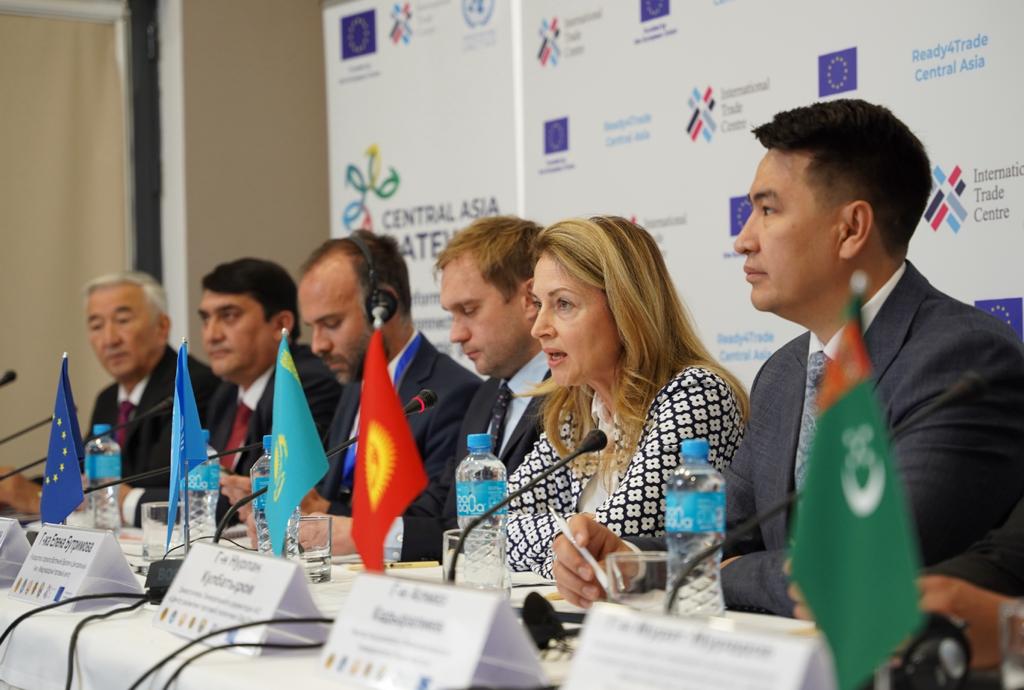ASTANA — The International Trade Center (ITC), a joint agency of the World Trade Organization (WTO) and the United Nations (UN), showcased the results of the European Union (EU)-funded Ready4Trade Central Asia project on May 17 in Almaty, highlighting ongoing efforts to develop intra-regional and international trade in Central Asia’s five countries, according to the ITC press service.

Results of the EU-funded Ready4Trade Central Asia project were presented on May 17 in Almaty. Photo credit: ITC press service.
During the meeting, Central Asia’s decision-makers and business representatives also reviewed the prospects provided by the Central Asia Gateway and the Central Asian network of Trade Facilitation Portals. Both are part of the Ready4Trade Central Asia project.
Central Asia Gateway combines data from trade facilitation portals in Kazakhstan, Kyrgyz Republic, Tajikistan, Turkmenistan and Uzbekistan. It provides operators with quick access to product-specific information on cross-border trade formalities. It aims to connect the region with international markets.
Similar portals have been established in 30 countries globally with technical assistance from the ITC and the UN’s Conference on Trade and Development, contributing to the goal of trade facilitation.
According to Program Manager at EU Delegation to Kazakhstan Yuryi Skaskevich, the launching of the portal is an essential milestone for the Central Asia region, which is in line with the EU plan to support a meaningful investment in quality infrastructure.
The Kazakhstan Trade Portal, created by QazTrade Trade Policy Development Center, has reduced the time and cost of doing cross-border trade. With over 5,000 users since its inception on July 4, 2022, its audience is continuously growing.
QazTrade Center Deputy General Director Nurlan Kulbatyrov said that the country’s trade portal provides the QazTrade Academy platform, which allows start-ups and existing entrepreneurs and exporters to understand the rules of international trade and their practical application to develop their businesses and enter new markets.
“The portal acts as an information and reference tool, allowing anybody to quickly become acquainted with a detailed description of the export/import and transit procedures for Kazakh business priority commodities,” Kulbatyrov said.
As part of the project, ITC designed and provided free courses for small and medium-sized businesses (SMEs) in every country to encourage regional and international trade. The courses vary from global trade rules to the export procedure, transit routes, quality and compliance standards, and EU market standards. Over 4,500 SMEs have benefited from online and offline courses on cross-border procedural and regulatory requirements.
According to ITC Senior Trade Facilitation Advisor Pierre Bontonneau, transparency in cross-border trade and private sector capabilities are vital to international trade. Bontonneau added that the project is a timely response to the needs of the private sector, particularly small businesses.
